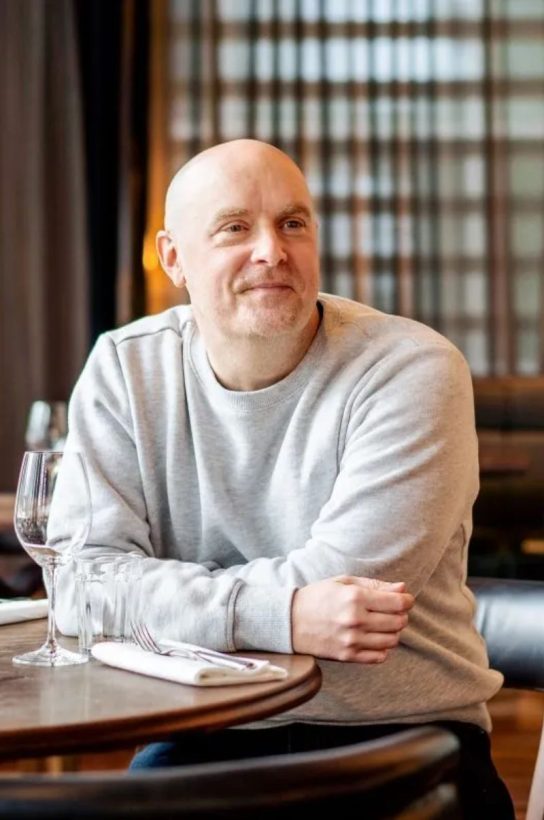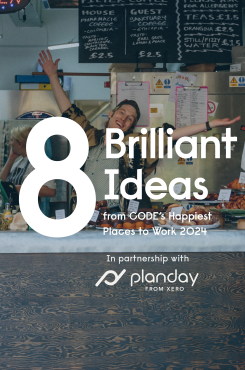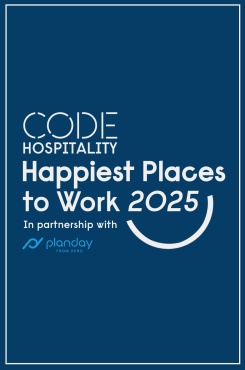On men, women, sexism, and the elephants in the room
Published 4 April 2025
By Will Beckett

When I got the email asking, “would you be up for doing an opinion piece about what industry leaders can and should be doing about sexism and inequality?” it made me think about elephants in the room.
The first elephant in the room is probably obvious. What is a middle-aged, middle class white male CEO doing writing about how to bring about a more equitable world for women as part of awards that are supposed to celebrate women in our industry?
I certainly hesitated in saying yes but in the end did so for a few reasons. Firstly, I hope Hawksmoor has done a good (but by no means perfect) job at this over the years, largely driven by a small group of brilliant, dedicated female leaders (many of whom have made CODE Hospitality’s Women of the Year list in previous years) and the Women at Hawksmoor group. If you want to know a bit more about it, you could search for ‘Hawksmoor Impact Report’ and read more.
Secondly, let’s not put the responsibility for resolving gender inequality – or any other kind of social injustice for that matter – on the people most affected by it. And let’s be honest and acknowledge that sometimes people react better to hearing things from “people like them”. Owners/CEOs in hospitality are disproportionately male, and while I’m writing for anyone who wants to read this, perhaps I’m particularly writing for them.
The next elephant in the room wandered in around the time of writing. One man in particular faced heavy criticism for his comment “I haven’t seen any sexism in the kitchen” but I’ve heard others say the same or similar: “It’s much better than it used to be”.
A few thoughts. Male leaders may not have seen it because it doesn’t happen to us; we may not have seen it because it doesn’t happen when we are around; we may not have seen it because we are not there; we may not have seen it because we are not looking for it. Ask yourself this: if no one ever loses their job at your company for discrimination, then it is probably more likely that it is happening than not.
Yes, things are better than they used to be in terms of the most unacceptable and the most visible kinds of prejudice. Much better. But they’re not perfect and, to be honest, a 22-year-old female chef doesn’t care much about how much better things were than in 2010 when she was 7. She cares how much better things are relative to her own professional experience – are things better than they were last year?
Finally, inequality and prejudice are related, but they are not the same. There are myriad reasons why women may experience worse professional outcomes than men. Take an interview for promotion for example; perhaps the male recruiter subconsciously looks more favourably on male applicants; perhaps the men who look at the role think, “yeah I could probably do that” and the women think, “I don’t have all those skills yet, but I’ll develop them first and apply next time”; when the salary negotiation comes up, the man asks for more and is considered a confident go-getter; but the woman doesn’t, knowing that she might be perceived as pushy or insufficiently grateful for the opportunity. Roll those differences out over a career and you’d have a huge gender pay gap there without any obvious prejudice happening. In your company, have you ever encouraged a woman to apply for a specific, senior job? Have you offered a woman the same amount you would have been happy to pay a man if only she’d negotiated harder? What is your pay gap? (Again, Hawksmoor is far from perfect, but we have a negative median gender pay gap of -2.4%, i.e., women on average actually earn a little more than men at Hawksmoor).
My last elephant in the room is about how to address this. Recently, I’ve been having a conversation about whether to focus on allyship (by which I mean educating men to create more comfortable, equitable workplaces for women), or coaching/mentoring (by which I mean trying to give women the confidence and skills they need to thrive in certain situations). My niggling concern is that for the improvements that have been made in the first of these – which is not to say it can’t improve! – we don’t appear to have made big strides in diversity and representation in certain areas, like senior leadership.
So, what do we do? To quote an exceptional woman, Maya Angelou, “Do the best you can until you know better. Then when you know better, do better.”
Listen to women, learn about their problems, do what you can to fix them, and celebrate their successes, as CODE are doing here. Congratulations to all the women listed, and to the many more throughout hospitality who do so much for so many.





